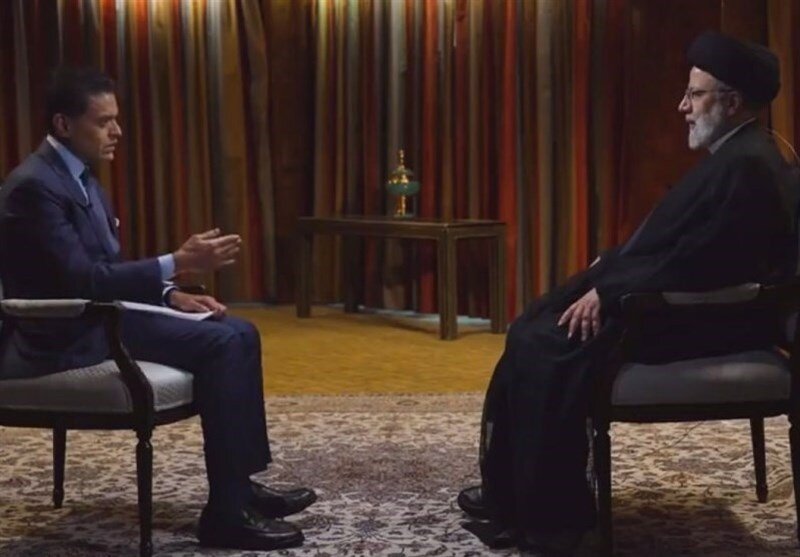Raisi says US tries to censor truth by banning Iranian media

TEHRAN- The U.S. Treasury Department has come under harsh criticism from Iranian President Ebrahim Raisi for its most recent sanctions against a number of Iranian media outlets.
In an exclusive interview with political commentator and author Fareed Zakaria, the host of CNN’s Fareed Zakaria GPS, on the sidelines of the United Nations General Assembly in New York on Thursday, Raisi criticized Washington’s efforts to censor the facts and prevent the general populace from discovering the real story.
“Why do you in the United States impede the dissemination of truth and not let it reach people? Why do you slap sanctions against news agencies? Why do you enforce bans on many youth networks in different parts of the world? Why do you prevent the echo of the voice of Iran and others and block it from reaching other people?” Raisi asked.
He went on to say, “What don’t you allow global issues to be clarified so that the peoples of the world become fully aware of circumstances and realize that the international community is not simply what the United States and certain European countries introduce?”
The Iranian president urged American journalists to inquire about White House officials’ decisions to impose restrictions on Iranian media outlets and the rationale behind their decision to stop news from reaching people worldwide. “In my view, this constitutes grave injustice toward nations.”
On September 15, the United States imposed further sanctions on more than two dozen Iranian people and media organizations in response to the baseless charge of “human rights abuse” made on the night of the anniversary of unrest in the Islamic Republic that was supported by the West.
“Tehran will never abandon its nuclear rights”
At a news conference on the sidelines of the UN meeting on Wednesday, Raisi also said his country will never give up its nuclear rights and wants the parties to the 2015 nuclear accord to take “practical” measures to uphold the terms of the agreement.
Raisi reaffirmed Iran’s compliance with its obligations under the nuclear agreement, officially known as the Joint Comprehensive Plan of Action (JCPOA).
He added, “Iran has never left the negotiating table and emphasizes that the U.S. and European countries should return to their obligations (under the JCPOA).”
The U.S. and its Western partners made a mistake by leaving the negotiation table in the wake of the unrest in Iran last year, the president regretted.
Raisi added, “If the Americans are ready to fulfill their commitments the ground will be prepared for achieving progress in the interactions and reaching a good (nuclear) agreement.”
The president also addressed Iran’s uranium enrichment program, declaring that “international observers have always verified this issue” and that “the nuclear program is completely peaceful.”
Raisi also refuted accusations by Western media that Iran was increasing the level of uranium enrichment, arguing that the country only enriched uranium to the necessary level for its non-nuclear operations.
“UN General Assembly creates an opportunity for interaction”
Upon arrival at Tehran’s Mehrabad Airport on Thursday evening, Raisi told reporters that participation in the annual UN meeting creates an opportunity for interaction and clarification of the positions of states.
“The two important issues of amplification of Iran’s position as well as safeguarding the country’s interests and values were underscored during the event and separate meetings with heads of state,” he added.
Raisi also said that “those who forego values would occasionally serve others’ interests. Protection of values is therefore of paramount significance. Homage to the Holy Quran is an important issue as it constitutes our identity. Emphasis on family values is also of significance to us and human societies, and should be paid attention to by anyone.”
“We had twenty meetings and interviews with journalists, scholars and politicians. During the meetings, Iran’s positions were made clear. The main focus of the meetings with the heads of more than 10 countries was to elaborate on Iran’s trade and economic relations with other countries as well as regional and extra-regional institutions,” the president stated.
Raisi also reiterated Tehran’s willingness to collaborate and engage with other nations and international organizations, particularly in relation to political and economic connections.
